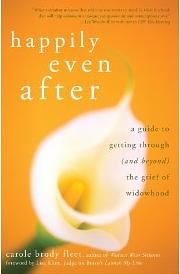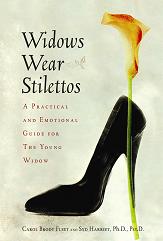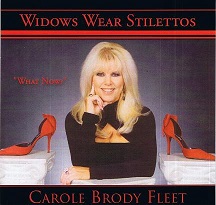I confess... I am a blonde-haired, green-eyed, modern-day dinosaur.
There was a time when to me, "hi-tech" was a lava lamp and interior design certainly included the presence of a bean bag chair and a blacklight. Through the years, I made each reluctant move from vinyl to cassette tapes to CD's to digital download that burgeoning technology demanded. I lingered as long as possible with VHS technology and rather than make the (again reluctant and long overdue) move to a DVR, preferred instead to race home from wherever I was in time to see the shows that I wanted to see and/or hit a "record" button.
Suffice it to say, I was dragged kicking and screaming into the wonder that has become social media. Even when the former message boards on our own website had to be removed and our administrative assistant relocated much of our membership onto Facebook, I still refused to join. It wasn't until 2010 (and after a great deal of shaming on the part of said administrative assistant and my daughter) that I became a part of the social media cybersphere.
What I did not realize at that time was that social media had the capacity to be an incredible instrument in grief recovery. I had delighted in watching thousands of friendships form through our own website and social media took that potential to entirely new levels. Our community grew rapidly and consequently, so did the ability to reach so many more people in need of grief recovery education, support and community. People not only participate on various community pages, they also began creating memorial pages (or converting existing Facebook pages into memorial pages) that allowed others to reach out in sympathy and share memories, photographs, video and other remembrances that were clearly helping people in their recovery processes.
So it was with more than a little skepticism that I read a story wherein a British scientist declared that social media was in fact, "making it harder to move on from heartache". **
Harder to move on? Having seen all of the positivity that results from being a part of an online community of healing and marveling at the countless number of friendships that have been and are formed as a result, this was a theory that was difficult for me to embrace.
Intrigued, I read on:
"Discussing how cyber culture affects the grieving process, one of Britain's leading scientists, [Professor] Sir Nigel Shadbolt said: 'When bad, sad or indifferent things happened to us, over time you forgot. That is why time could be a great healer. But If you've got this complete authentic playback of people and episodes, it'll be quite haunting'."
Forgot? Forgot what? A person lost? A life lived? And playbacks of memories are "haunting"? Feeling my crankiness level shift and trying desperately not to envision my dearly departed loved ones as characters from the "Thriller" video, I continued reading:
"And rather than being a comfort, Sir Norman [sic] suggests lingering online photos and messages can actually cause more distress. He added: 'One of the things that human psychology has evolved to do is forgetting. We don't have perfect recall, we didn't used to have this way of things being represented back to us'."
It is true -- we do not have "perfect recall" and in fact, I have long taught that we tend to have selective amnesia when it comes to remembering our late beloveds. However, we also have selective amnesia in many other areas of our lives; otherwise, the females of the world would each have one child and stop there (since selective amnesia pretty much dulls the entire labor/child bearing/recovery process).
I have spent years teaching that healing and moving forward post-loss does not and should not equal forgetting. The good professor seems to feel otherwise; as though the mere passage of time is equivalent to a good and necessary dose of amnesia. The reality is that the overall message being conveyed in this article is borderline dangerous to those who may already be questioning the "right" and "wrong" of their grief recovery.
Further, and begging the good professor's pardon, what about people who do not have any means of support other than what is available on the Internet? What becomes of those in small towns and/or those without a readily available community? Social media might be their only means of reaching out. As reluctant as I may have been at one time to become a part of social media, I will never deny the tremendous good that social media does to both grow and serve a community that a little over a decade ago, simply did not exist in cohesive form.
The debate over the use of social media and its usefulness continues on and there are portions of that debate with which I agree. I suppose I will never understand someone taking to any form of social media to share that they ate an apple or metaphorically wash what would have previously been coined as dirty laundry in a very public way. Remember, I'm of the generation who had diaries that came with a lock-and-key and social media seems to have erased the need to keep private matters private.
However, if as the professor (and other experts alongside him) feel that Facebook, Twitter, et al, are doing a disservice to the bereaved community; that people would be better served by allowing the mere passage of time to enable "forgetting" (and I am not even sure what that would look like) and that various posted remembrances ultimately hinder the healing process and do more harm than good, I would heartily invite the professor and his colleagues to talk to any one of the millions of people who have been helped as a direct result of a social media presence. I would gladly share stories of the friendships built to last a lifetime that would not exist absent the Internet. If people do feel hindered, held back or stuck altogether in their healing processes because of their active participation in social media or by facilitating a page in memoriam, the answer is easy. They will remove themselves from social media of their own volition and thereafter do whatever it is that they feel will move them forward -- and not because they have been told that their actions "can actually cause more distress".
I understand that grief must be studied and examined by the scientific and medical communities. I also understand that the societal complexion of grief and how we both view and treat the bereaved is a paradigm that is constantly shifting, but perhaps never more than in the last ten to fifteen years. That said, and with no disrespect meant toward or directed at medical experts, scientists, academics or others who would attempt to reduce grief to methodical study, "healing" in no way equates "forgetting" -- nor should it. To imply otherwise is sending a sorry and potentially perilous message to the bereaved community. Already generally dealing with a tremendous amount of guilt for even so much as laughing after the loss of a loved one, why would anyone even suggest that moving forward equals -- or worse, requires -- "forgetting"?
As much as the scientific world may wish it were otherwise, grief and its attendant healing process just doesn't box up as nicely and neatly into tidy, prefixed packages as they might prefer. Social media can play an integral part in healing and that there needs to be greater understanding of this reality on a much wider level. The bereaved are capable of both healing after loss while carrying precious memories forward. If we teach that "healing equals forgetting", who is going to choose to focus on healing? Who is going to be able to move forward without feeling guilty or feeling as though they have to 'forget' in order to heal? If social media as a whole and the virtual presence of others who understand can help facilitate the healing process in a healthy way, who would argue that?
As an aside, I myself have nursed and buried a husband. I thereafter nursed and buried my father four months later. I went through the paralyzing, mind-numbing grief that both losses brought and helped my young daughter to do the same. I also eventually moved forward into a new life, which includes new love, a beautiful marriage and my wonderful blended family.
I have indeed healed -- but I have not "forgotten"... and I never will.
Rather than inferring or outright teaching that "healing = forgetting", that one is a prerequisite to the other and that social media is a hindrance, let us instead support whatever healthy and productive measures the bereaved wish to take in order to facilitate healing. It may not be the most scientific approach... but it surely does appear to be an approach that works for too many to be ignored.
** Excerpted from, "Why Facebook Pictures Mean the Pain of a Bad Break-up or Losing a Loved One Doesn't Fade Like It Used To", The Daily Mail (United Kingdom, online), September 28,2013



Carole's latest book, "Happily Even After..." has won the prestigious Books for a Better Life Award. For more information about Carole Brody Fleet and Widows Wear Stilettos, please visit www.widowswearstilettos.com
Follow on Facebook at Widows Wear Stilettos
Follow on Twitter: @WidowsStilettos
